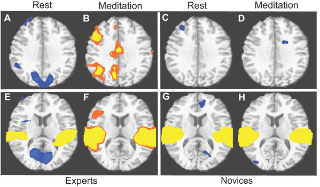If I could tell people one thing about compassion, it would be this: compassion is a full body experience.
Compassion affects the physiology of our bodies in remarkable ways. People are generally surprised by this since they often associate compassion solely with emotions.
Nothing could be further from the truth.
Your heart, brain, immune system, and so much more have physiological responses to compassion. It is my life’s work to shine a light on the magnificent effects of compassion to our physiology in as many ways I can.
First things first: compassion heals.
Let’s start with a richly controversial topic: compassion-burnout v. empathetic-distress/overwhelm.
One of these is physiologically impossible and the other is an overlooked, preventable, and treatable malady.
Compassion from a psychophysiological perspective is associated with reward centers in our brain. Klimecki’s research found the effects of compassion were seen in the reward centers of our brains. This is good news. It means that our brains are rewarded for having compassionate thoughts and acts.
Further research into compassion versus empathy has shown that empathy lights up areas of the brain associated with pain.
We do feel each other’s pain! At least our brains do.

Electroencephalograms (EEG’s) are devices that capture the ‘raw’ electrical signals of the brain and transform them in to sperate frequencies that can be read and interpreted. EEG’s have provided evidence of compassion’s effect on brain function as well. We see changes with increased gamma waves (the highest frequency of an EEG) with those who do compassion-based meditations. When we are feeling happy, thoughtful, focused, and alert gamma waves normally appear.
This sounds like a fantastic state to be in.
While compassion is associated with reward and feel-good hormones, empathy is a bit more complex and not as benign.
Too much empathy is akin to chronic pain. Our brains do not know the difference between pain caused by a hammer to the thumb v. the pain of empathy.
If we are experiencing chronic pain, we tend to feel depressed, tired, burnout and over it. Now relate this to a “chronic state” of empathy. Being in a state of empathy for too long can have the same effects as chronic pain, and it frequently does. Those individuals that spend too much time in an empathetic state often do suffer with overwhelm, distress, and burnout.
What most people call compassion fatigue is not physiologically possible. What we are seeing is empathetic distress/overwhelm or just plain ol’ burnout.
Before we charge empathy as the root to all evil, we need to understand this: empathy is not bad. Empathy is like salt. A little is great, too much can be harmful.
In medicine, we need to know what we have to treat it. The same rule applies here.
The cure for empathetic distress/overwhelm you ask?
Compassion.
Cate is currently finishing work on her book The Compassion Remedy. This will be ready for pre-order in February and available to buy in the Spring. She is writing for the GCC in her own capacity.
